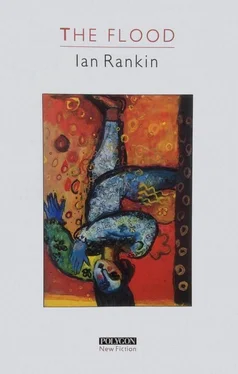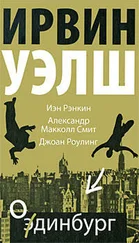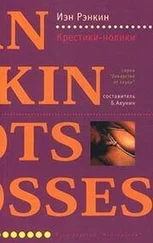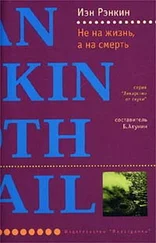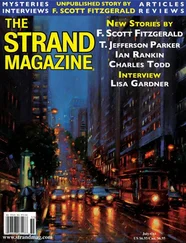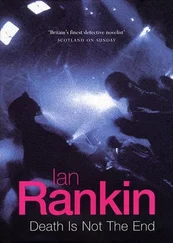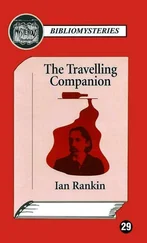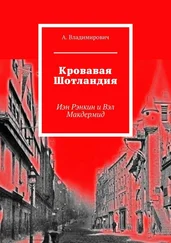‘You beast, Robbie, why haven’t you been to see your old auntie before this? I was of a mind to come and see you meself.’ There was no kissing, no handshakes. They stood a foot or two apart and smiled. Then she ushered them both towards the caravan. Sandy was having second thoughts. He recalled fairy stories his grandmother had told him. Her fairy stories could not be found in books. They came from her head, as if it were some great repository of knowledge. Sandy had the feeling that, because she told her stories with her eyes closed and without the aid of books, his grandmother’s tales had been real. This had shocked him into full attentiveness as a listener, and he had forgotten few of them. He remembered one now. It concerned a young girl who was taken to a gypsy camp and made to dance until she died, but when she died her spirit had been strong and she was able to cure her little sister who had been crippled. Sandy knew that in essence the story was concerned with not fearing death, but there was something more to it. Who could say that he was not walking into a sacrifice? Rian had told him never to trust Robbie. Now he was in the hands of both Robbie and the aunt who, according to Rian, had wanted to use her cruelly. He had been stupid to come to this place.
A large mongrel dog, as if confirming his growing fears, barked at him viciously. It was tethered to one of the caravans, but only by a rope. He backed away from it, and in so doing edged closer to the old, cackling woman and her caravan. Robbie approached the animal and stroked it. It ignored him and went on barking and baring its teeth at Sandy.
‘Come on and make friends,’ Robbie called to him, patting the snarling beast.
‘Come inside, dear,’ coaxed the old woman with her dark mouth.
Sandy tore himself in two. Part of him ran to safety, but that was his spirit self; his body climbed the two iron steps slowly and was inside the caravan.
The woman stooped low over her cooker and ignited the gas. She pushed a blackened kettle on to the ring. Sandy inspected the cramped interior. There was nothing romantic or sensational about it. A small television sat on the only table, wired to a car battery on the floor. There were two bench-seats facing into this table, the whole contrivance becoming a small double bed when adjusted. Sandy liked caravans. He liked their clever compactness, not an inch of space wasted. He realised that life in the town was a little like that. He looked at the paintings on the walls, crude, cheap reproductions in plastic frames. There was no toilet. He remembered the woman emerging from behind the caravan. He could taste mothballs at the back of his throat.
‘Cup of tea, son?’
‘Please.’ The old woman grinned at him again.
‘Scared of me, son? People are. People say it’s because of me teeth. They say I should get new ones, but the price of these things is ridiculous. Besides, these have done me well enough over the years. I can still chew me meat with them, so there you are.’
So there he was. ‘Yes,’ he managed to reply.
‘You a friend of our Robbie’s? Robbie’s not got many friends, has he?’ She was watching the kettle as it began to steam. She moved to the tiny sink next to the stove and rinsed three cups in a thin trickle of water from the faucet. ‘Bit of a loner like. Gypsies have to be, haven’t they, son? Not much else open to them. Still, I wish the townies — no offence to yourself, son — would stop bothering us.’ She glared at him for a moment, so that the point was not lost on him. ‘It’s a respectable life that we lead. Ancient, too. Goes back before towns was even invented. You look it up in your library, son. Gypsies has been here since the country itself.’ She chuckled. It was, Sandy realised, a matronly sound rather than a wicked one. He could talk.
‘My mother’s supposed to be a witch,’ he said. He wondered why he had said that. Perhaps, he thought, to show that he understood.
‘Is she now? Oh yes, I seem to remember being told about the town’s witch. Ah yes. Cause of bad luck, wasn’t she?’
‘She’s not really a witch.’
‘Gracious me, of course she’s not. Witches never existed, except in people’s minds. All there was in the olden days was women and some men who believed in herbal cures and in folklore and in the wish to fly. Witches? We’re all witches in one way or another. Witches was the invention of mankind, son. We’re all witches beneath the skin.’ Her words sounded wise to Sandy. She poured boiling water into a battered teapot. He wanted suddenly to be her friend.
‘My name’s Sandy,’ he said. She smiled and nodded. His eyes were mesmerised by the loose fold of material pinned behind her with a large safety pin.
‘You’re wondering about me arm, Sandy,’ she said, her back still towards him. He was stunned. It was as if she had really read his mind. He remained silent and she turned towards him and chuckled again. ‘Course you are.’ Then she went to the open door. Sandy noticed that it was growing dark outside, though it was only two o’clock. Clouds were gathering for a storm. The drought was about to break. ‘Robbie!’ shouted the old woman, ‘Tea’s up!’ The dog barked keenly as Robbie sprinted to the caravan. There were specks of water on his shoulders as he entered, stooping.
‘That’s the rain on,’ he said. ‘Looks like a heavy one, though.’
Sandy began, almost instantly, to hear the raindrops on the roof, like sharp raps against a drum. Carsden had a fine pipe band, but they would have been hard-pressed to play the tune that was soon dancing on the caravan’s skintight roof. They sipped the tea around the small table, Sandy’s knees rubbing uncomfortably against those of the woman. They listened to the rain as if it were music.
‘That’s summer over,’ said Kitty. She winked at the boy. There was a trace of matter in one of her eyes. Sandy wondered if the eye, like her arm, was useless.
‘You could be right, Kitty,’ said Robbie. ‘I was telling Sandy that I’ve noticed a cold air this past few days.’
‘A cold air?’ Kitty stared hard at her nephew. ‘Cold air nothing. Look at you. You’ve been drinking too much and not eating a thing. You’re dying of the wrong diet, Robbie. She’s to blame. You should come back here where you belong.’
‘What about Rian? She belongs here too.’ Robbie, having said this, supped his tea and kept his eyes on the table. There was a silence, broken only by the heavy battering of the rain upon the roof.
‘Leave her to her ruin,’ said Kitty, her mouth brushing the edge of her chipped cup.
‘I can’t do that, Kitty.’
There was a pause, the most excruciating silence Sandy had ever heard. The air seemed tense with thunder. The rain was easing.
‘Don’t I bloody know it!’ exploded the old woman. She glanced at Sandy and calmed down. ‘Sorry, son. You shouldn’t have to listen to this. It’s the same every time Robbie conies back.’ She chuckled hollowly. ‘Will I make you something to eat?’ She rose from the table. Sandy looked at Robbie, who was staring out of the rain-daubed window.
‘Any smokes, Kitty?’
She rummaged in the pocket of her dress and threw a small pack of tobacco, a thin roll of papers and a box of matches on to the table.
‘Ya,’ said Robbie. The threat of thunder eased, Sandy remembered that rain comes after thunder, not before it. He was sweating. The air was still and thick. The rain would freshen everything. It was great to walk about after rain. He hoped he could escape soon.
‘Sandy here fancies Rian,’ said Robbie casually as he rolled a cigarette. Sandy was startled by his friend’s cruelty.
‘Is that surprising?’ muttered Kitty. She turned towards them. ‘Remember what I said about witches, Sandy? I take it all back. Witches do exist, and that bitch is one of them. Steer clear of her. That’s my advice and always has been.’
Читать дальше
